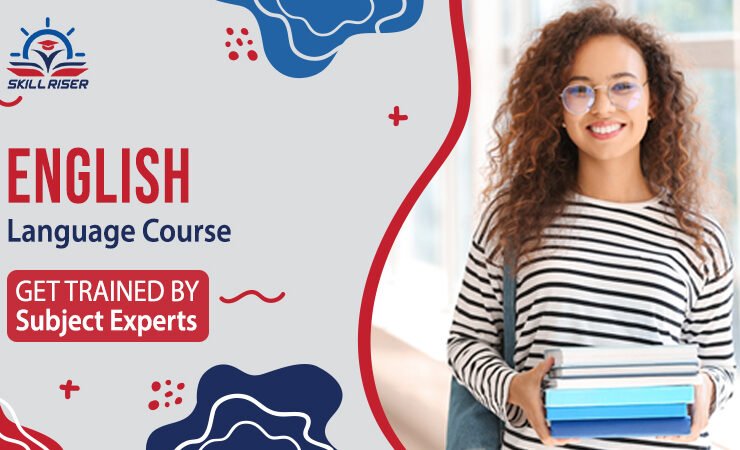ENGLISH LANGUAGE COURSE DESCRIPTION:
The English Language course in Dubai is a perfect understanding of grammatical language with effective use of timing or tenses in conversation and everyday interactions to gain instruction over self-description, asking and answering situational questions, learning the art of explaining ideas, as well as improving accent, word sounds, formal and informal language.
BENEFITS OF LEARNING
The major goal of the English Language Course is to increase students’ general competence to the point where they can utilize English in a professional and academic setting. Students are taught how to speak, read, and write. They learn basic grammatical structures and functions (for example, sentence types, tenses, voice, parts of speech, word order, expressing possibility, obligation, necessity, prohibition, and criticism; expressing preferences, making assumptions; asking for/refusing/giving permission; making offers, suggestions, and so on). They enhance their basic vocabulary in order to perform the above-mentioned roles, subjects, and dialogues. Students are trained at
Skill Riser Training Institute to be able to communicate about a variety of issues (people, occupations, places to visit, festivals/celebrations, disasters/accidents, eating habits, sports/hobbies, environment, education, entertainment, transportation, crime, and so on). Students learn to interpret spoken language in a Spoken English course. Monologues and interacting speakers are examples of listening literature. They are taught to concentrate on getting the idea of what is being said, to hunt for detail or particular information, and to determine the meaning. Students are given adapted/instructional reading material and are encouraged to learn how to use various strategies for various reading purposes, such as identifying the main points in a text, looking for detail, finding specific information in a text, understanding the structure of a text, and so on. Students should learn to write a variety of written texts, including formal/informal/transactional letters, argumentative essays (presenting opposing viewpoints), narration (story writing), memos, and notes.
MODULE FOR WRITING
The objective of the English Language Writing module is to help students improve their writing abilities so that they can respond to input and apply information to a specific assignment, as well as elicit, select, and summarize material in essays (160-250 words):
- THE STRUCTURE OF THE BASIC AND ADVANCED GRAMMAR
- RANGES IN GRAMMATICS
- IN THE CLASSROOM, MAKING GRAMMAR BASED NOTES
- WRITING ON AN EXTREMELY VARIETY OF TOPICS.
- KEYWORD RESOURCE
- CONCEPTION
- COHERENCE
THE MODULE FOR SPEAKING
The goal of the English Language Speaking module is to help students improve their speaking abilities so that they can utilize general, social, and professional language (within the Breakthrough level):
- PERFORMANCE OF AN ORAL PRESENTATION
- WORD SOUNDS AND PRONOUNCIATION
- TALKING ABOUT ROUTINES IN THE REAL WORLD
- SPEAKING IN A DIFFERENT SCENARIO
- DISCUSSION IN THE GROUP
- BODY LANGUAGE IMPROVEMENT
- LANGUAGE, FORMAL AND INFORMAL
MODULE FOR READING
The English Language Reading module’s goal is to help students improve their reading abilities so that they can skim an adapted text for the main concept, scan an adapted text for particular information, and analyze an adapted text for inferences:
- Scanning & skimming
- In-depth study
- Using context to guess unknown words
- Understanding the structure of a text
- Recognizing the difference argument & counter-argument
- Identifying the difference among secondary information
THE MODULE FOR LISTENING
The English Language Listening module’s goal is to improve students’ listening abilities so that they can comprehend and apply particular information from the input. V. General understanding (listening for gist, listening for detailed information, evaluating the importance of information). Lectures (W) (identifying the topic and main themes, identifying relationships among major ideas, comprehending key information).Feel free to
Contact Us or W
hatsApp Us